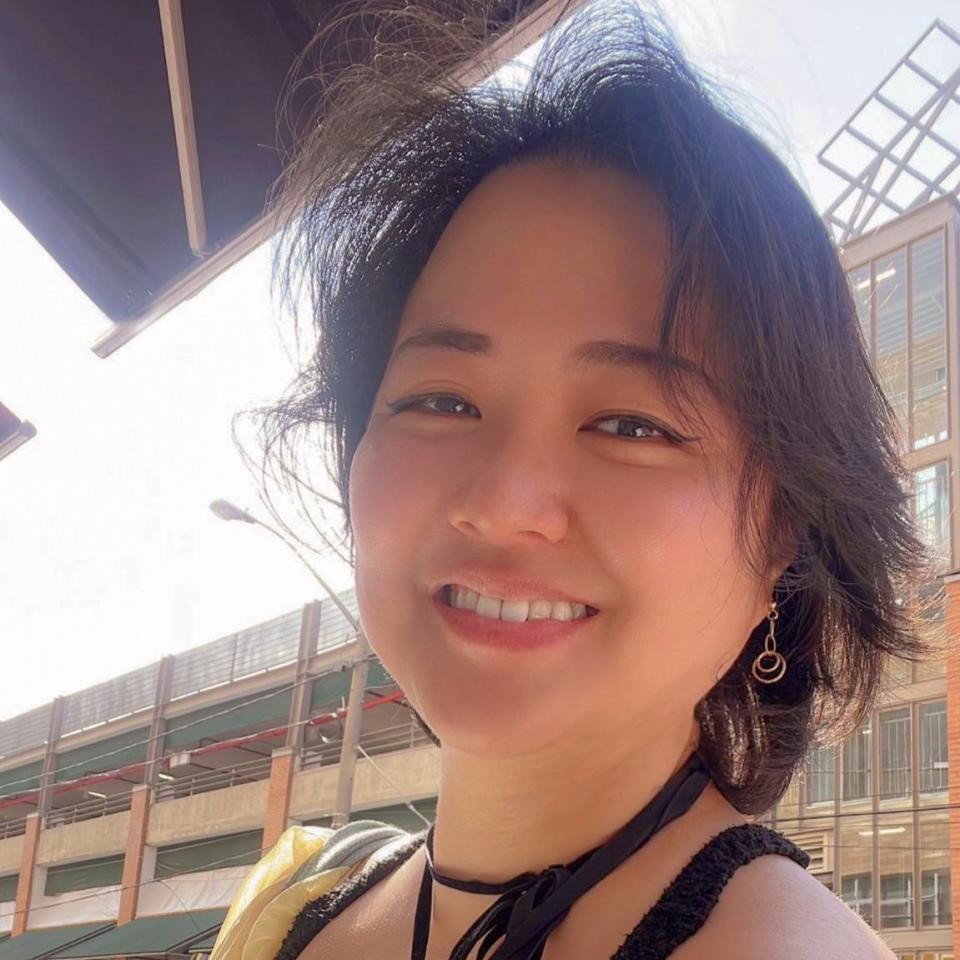Chanee Choi
IAS Q&A
When you arrived at the Institute you probably had a concrete idea or plan of what you would like to achieve during your stay. Were you able to pursue these plans? Did there emerge new, unforeseen directions?
During my time as a fellow at the Institute for Advanced Study at Central European University, I dedicated a lot of thought to how I could further develop my art project, "Remembrance", which blends brain sensors with video games and performance. I was eager to infuse new vitality into my research work by drawing inspiration from this new environment.
Having transitioned directly into work immediately after completing my doctoral studies in the United States, those busy days were quite demanding, which made this fellowship experience feel like a rewarding compensation. Being in a great city with a thriving community during a favorable season, and with no pressure to juggle a full-time job, I was able to immerse myself fully in my research. The environment allowed for relatively flexible time management, giving me the opportunity to take a much-needed mental breather and find new inspiration and energy for my research. Also Interacting with fellow researchers who shared the same building enriched my experience even further. I had the privilege of learning from their expertise in various fields, which significantly contributed to my own work.
The three-month duration of the fellowship felt surprisingly short, and I couldn't help but feel a sense of regret as it came to an end. I can't help but wonder how much more progress I could have achieved if the fellowship had been extended, perhaps for five months or even up to a year.
More generally speaking, who or what influenced your work and research path the most?
Alvin Lucier, a renowned American composer born in 1931, was known for his experimental approach to music, exploring sound phenomena and auditory intuition. His work encompassed both experimental music and sound installations. His project, "Music for Solo Performer," has significantly influenced the research direction I have taken in my current project.
To which debates or schools of thought do you see your research contributing?
My current project, "Remembrance," is a transdisciplinary endeavor that leverages technology to bridge the gap between dementia and art. It involves the integration of technical aspects related to dementia, which are typically addressed in medical and scientific fields, with the creative domains of art and narrative literature. As a result, I consider its primary contribution to be in the realm of art, while also addressing dementia from a medical perspective. Furthermore, I want to highlight that the AI technology utilized in the "Remembrance" project has been approached with a strong ethical stance, particularly in light of the ongoing debates concerning copyright and ethical considerations in AI-generated art. Throughout the project, meticulous attention has been paid to avoiding issues related to plagiarism and, instead, our efforts have been focused on finding ethical and constructive solutions. Therefore, I have endeavored to contribute positively to the ongoing discourse surrounding AI and creative works.
How do you see your field of research today, how is it evolving?
In the realm of art and technology, my research focuses on crafting artworks that consistently integrate the interplay between established art and technology. This approach not only allows me to anticipate future advancements but also delve into the enduring artistic potential that emerges from the continuous fusion of technology and art. Through this ongoing exploration, I aim to discover the boundless artistic possibilities presented by emerging technologies while upholding a critical perspective on their influence. My research in this field is fundamentally grounded in a human-centered philosophy and continues to evolve accordingly.
How is life after IAS CEU Budapest (if we may ask)?
Prior to my arrival in Budapest, I had endured the hardships associated with being an immigrant in the United States and the exhaustion that comes from years of living in a competitive society. However, during my three-month stay in Budapest, I had the privilege of engaging with warm-hearted individuals, acquiring new knowledge across various fields, and taking the time to contemplate research and life without the weight of the constant need for significant accomplishments. This period was incredibly valuable.
While my life has returned to its previous routine since leaving Budapest, I now recognize that those three months were not merely a period for research and a brief respite. They were a pivotal moment that significantly expanded my perspective and understanding of the world.
If there were one book or film you could recommend to the reader, what would be that and why?
I recommend Spike Jonze's 1999 film "Being John Malkovich." In this movie, John Cusack portrays a relatively obscure puppeteer who stumbles upon the ability to temporarily inhabit the mind of the famous actor, John Malkovich. The film skillfully delves into the intricate web of human relationships surrounding the protagonist, while also weaving in layers of social commentary. Its astute and humorous portrayal of the complex dynamics between characters makes it a highly enjoyable and thought-provoking cinematic experience.

